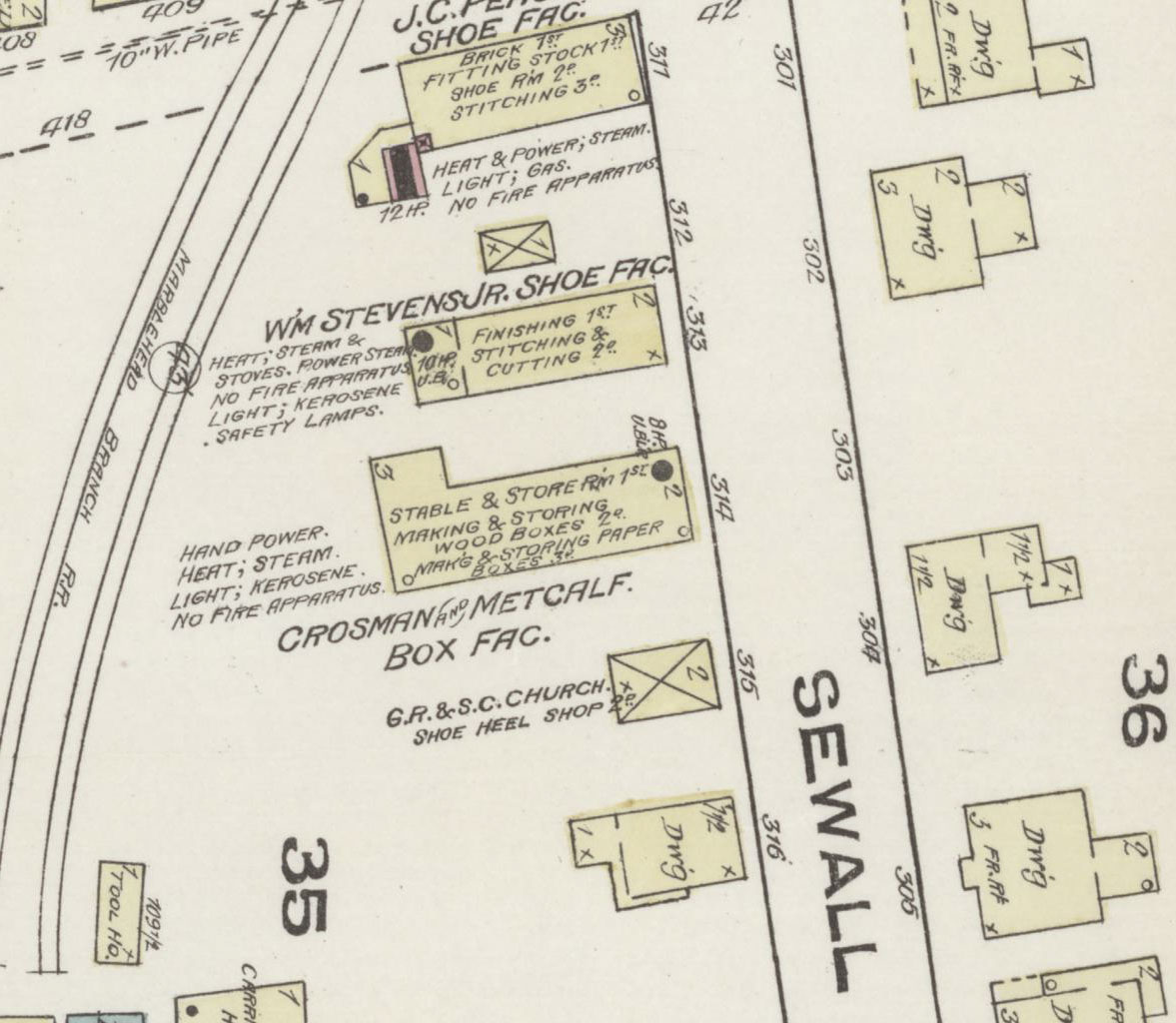Fishing. Boating. Shoemaking. Partaking in the Revolutionary War. All of these industries were once booming in Marblehead. But I want to write about one less common.
The original structure at 18 Sewall St. was destroyed in the fire of 1888, just a few years after being built. Before the fire, it appeared on the 1885 Sanborn Fire Insurance map of Marblehead. There, the building is called the Crosman and Metcalf Box Factory. Not only is the building labeled, it is also notated. The notations read: “Stable & storeroom 1st; making & storing wood boxes 2D; mak’g & storing paper boxes 3D.” Notes also claim that included in the building were “hand power. heat; steam. Light; kerosene. No fire apparatus.”
What an oversight.
But by 1890, the building was reconstructed. With that slight hiccup out of the way, the history of this building really begins.
According to a document from the Massachusetts Cultural Resource Information System (MACRIS), upon reconstruction, George Crosman moved his business to his hometown of Lynn to deal in shoemaking and box manufacturing. After this, 18 Sewall St. became the Geo. L. Metcalf Box Factory, named after George Latimer Metcalf. He was one of 11 children born to Irish immigrant Savel Metcalf and Nabby Cook of Bellingham.
While living in Marblehead, Metcalf married his second wife, Elizabeth Crowninshield. The pair lived at 5 Vine St. with two daughters, Alice and Anne, as well as Elizabeth’s sister Anne and Geroge’s nephew Frederick.
So, you may be thinking, I gave up writing about shoemaking and fishing for… box making? Just be patient.
The 1926 Sanborn map shows that with the new century came a new industry. Renovations were occurring at 18 Sewall St. in order to house a new company – the Daddy Scott Toy Company. The company was started by Canadian immigrant Hugh David Scott – likely the original Daddy Scott.
The Daddy Scott Toy Company made exactly what it sounds like, toys. To be more exact, according to a brochure, “toys, windmills, and novelties.” These toys were usually “pull toys comprised of small wagons drawn by a variety of animals,” according to MACRIS.
The document cites two women, Veronica Canniffe and Dorothy Norwood, as the artisans who did most of the work on these toys.
By 1930, Scott’s sons Walter and Harold took over the company. The MACRIS document states that the company expanded to include advertising display printing and painting in the 1940s.
But that’s not all!
After box-manufacturing and toy-making, 18 Sewall St. became home to Rosalie’s Restaurant. After a 1983 Visa commercial that highlighted the Italian restaurant in a campaign that focused on local businesses that accepted Visa (and notably, not American Express), Rosalie’s Restaurant became an even bigger hit than it was a local hidden gem.
All three of these businesses – Metcalf’s, Daddy Scott’s, and Rosalie’s – are long gone. But who knows, maybe something just as interesting will crop up in the future.

